The views expressed in our content reflect individual perspectives and do not represent the authoritative views of the Baha'i Faith.
Among all the various inner qualities we need right now, patience probably ranks right up there near the top. I know I need it.
We can feel impatient about a host of things today, from the boredom of sheltering-in-place to being unable to freely pursue all the things we value. We could be impatient or unhappy with how the pandemic itself has been dealt with. We can impatiently miss our loved ones, our social lives, our work and our usual recreation, among the many dissatisfactions available to us at the moment.
The Baha’i teachings call on each of us to develop the virtue of patience: “O Son of Man! For everything there is a sign. The sign of love is fortitude under My decree and patience under My trials.” – Baha’u’llah, The Hidden Words
So, to try and work through my own impatient pandemic frustrations I have taken to reading about and studying the lives of some very admirable people, who had it much, much worse.
Let me tell you about a woman whose long life of patience and perseverance has to rank among the most enduring and noble examples ever – Bahiyyih Khanum, the daughter of Baha’u’llah, the prophet and founder of the Baha’i Faith.
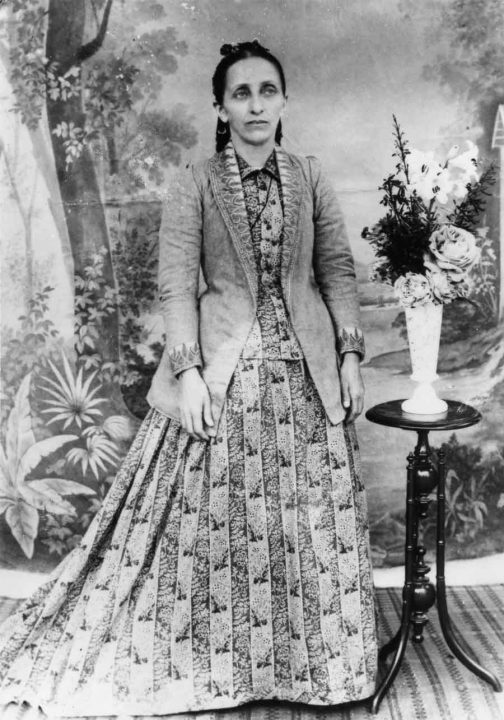
Born in Iran in 1846, Bahiyyih Khanum was raised by Baha’u’llah and his wife Navvab in one of the wealthier families of Tehran. She spent the early years of her childhood playing in beautiful gardens with her older brother Abdu’l-Baha, and going to school where she learned Arabic, Persian and Turkish, receiving a formal education unlike most other girls during that time. She also grew up in a tradition of helping and serving others, influenced by her parents’ well-known devotion to society’s most disadvantaged people, indicated by their informal titles, “Mother and Father of the Poor.”
The years immediately preceding and following her birth were also the first years of the Babi Faith, the millennial spiritual movement that took Persia by storm in the 1840s. Her father Baha’u’llah involved himself in that movement from the beginning through correspondence with the Bab, its founder.
The Bab’s progressive teachings soon stirred up the entire nation, alarming the orthodox clerical leaders and the government. With their ties to power the clerics sought to extinguish this revolution of thought and faith. A wave of oppression soon washed over everyone associated with the Bab, so extreme in its violent implementation that accounts reached the chronicles of the West, especially after the Bab himself was martyred by a government firing squad in 1850.
Because he was identified as a Babi leader, the Persian authorities imprisoned Baha’u’llah in Tehran’s notorious, “black pit,” called the Siyah-Chal, in 1852. At the same time his family was stripped of their riches and properties. Baha’u’llah’s wife and children became homeless in a single day. They did not know from one moment to the next whether Baha’u’llah would be executed, the fate so many other Babis had already faced. After four months of torturous confinement, Baha’u’llah was released and exiled to Baghdad. The family, with insufficient attire and few possessions, made the long journey on foot and by mule in the winter over snow-topped mountains to Iraq.
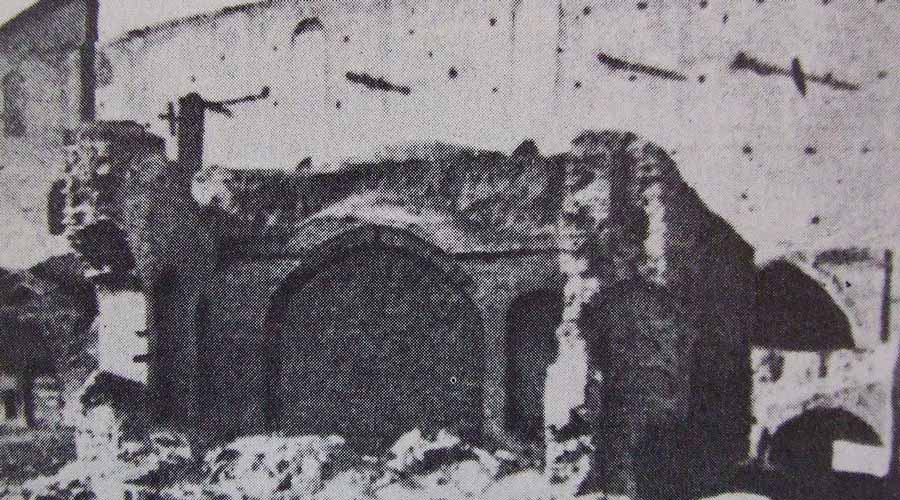
Thus began the 80 years of Bahiyyih Khanum’s remaining life, living in exile, poverty, and imprisonment. After a number of years in Baghdad, it became evident to many close to him that Baha’u’llah was the messenger of God as foretold by the Bab. His children, all under 10, recognized Baha’u’llah’s station and declared their loyalty and devotion to him.
In 1863 Baha’u’llah announced his new Faith publicly. As his reputation for deep spiritual insight and wisdom grew and his teachings spread, people of all kinds flocked to him and adopted the progressive principles of his Faith. Despite the danger of persecution, thousands became Baha’is. Once more the Faith grew rapidly, at an alarming rate to the enemies of the Faith, who thought they had sufficiently suppressed it. Again the unfounded fears of the Persian and Turkish governments incited by the religious authorities caused them to further banish Baha’u’llah, his family and some core believers, to try to crush the Baha’i Faith.
From Baghdad they were exiled and imprisoned three more times, the last to the prison city of Akka, in Palestine (now Israel). Considered the worst prison in the world at the time, its inhabitants were not expected to live more than a year, which made it a death sentence. His family, imprisoned with him, suffered severe hardships. However, Baha’u’llah lived 24 years there, before passing away in 1892.
Bahiyyih Khanum and her beloved brother Abdu’l-Baha, survived as well, to be freed in their later years when the Ottoman Empire fell apart. Abdu’l-Baha, named by Baha’u’llah as his successor, became the head of his father’s Faith for the next 29 years, until his passing in 1921.
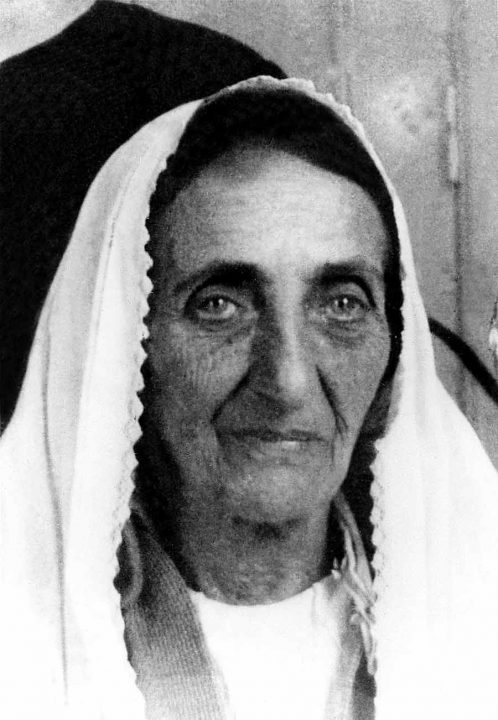
So Bahiyyih Khanum only had six years of childhood, of what we would consider a normal life. She endured her remaining eighty years while facing the greatest imaginable difficulties with a universally-acknowledged nobility, dignity and calmness. In spite of the deplorable living conditions, the frequent lack of potable water, a poverty sometimes so acute her mother had to give her a handful of flour as her sole daily sustenance, and the constant persecution by the authorities, Bahiyyih Khanum persisted patiently. She prevailed through the constant threats on Baha’u’llah’s life and the several unsuccessful attempts that were actually made. She faced the tragic death of her beloved younger brother, Mirza Midhi, while the family was imprisoned. All these and more were her lot in life.
“The Greatest Holy Leaf,” the title given to his daughter Bahiyyih Khanum by Baha’u’llah, exemplified her uncommon attitude about patience. That rare quality, developed through dire tests and trials, can best be described by reading her own advice on the subject:
“… We ought to never be known to complain or lament. It is not that we would “make the best of things” but that we may find in everything, even in calamity, the gems of enduring wisdom. We ought never be impatient. We ought be as incapable of impatience as one would be of revolt. This not being so much long-suffering as quiet awareness of the forces that operate in the hours of dark or years of waiting and inactivity. Always we ought to move with the larger rhythm, the wider sweep, towards our ultimate goal, in that complete acquiescence, that perfect chord which underlies the spirit of the Faith itself.” – Bahiyyih Khanum
I leave it to you to contemplate these powerful thoughts, and hope they give you, as they have given me, a light on how to live under difficulties.


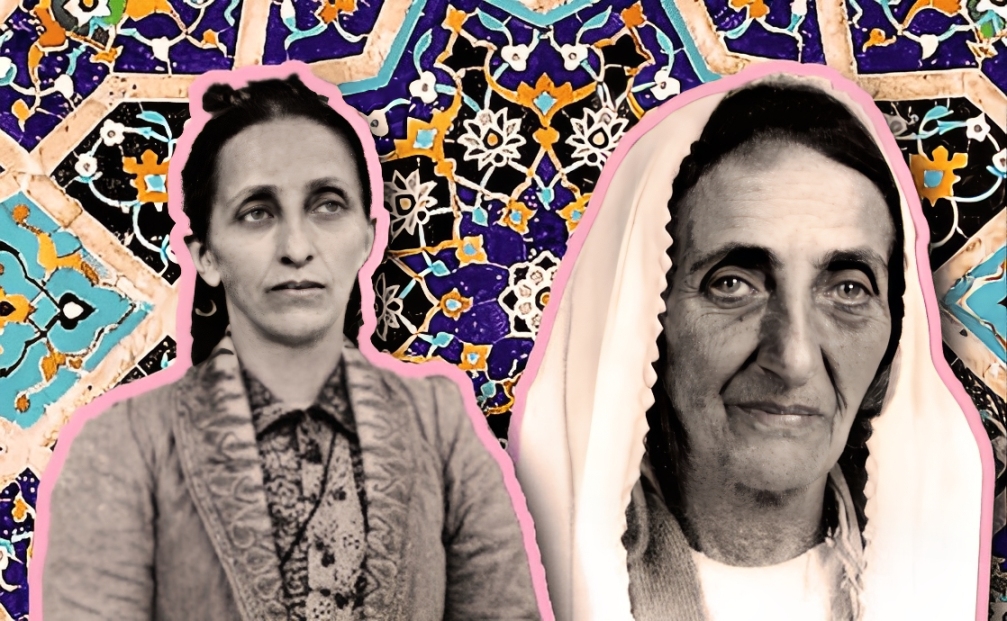


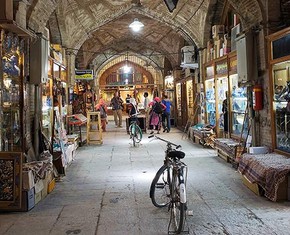
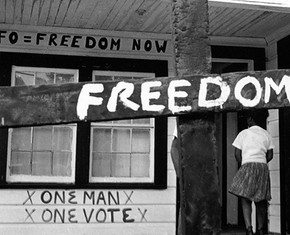









Comments
Sign in or create an account
Continue with Googleor